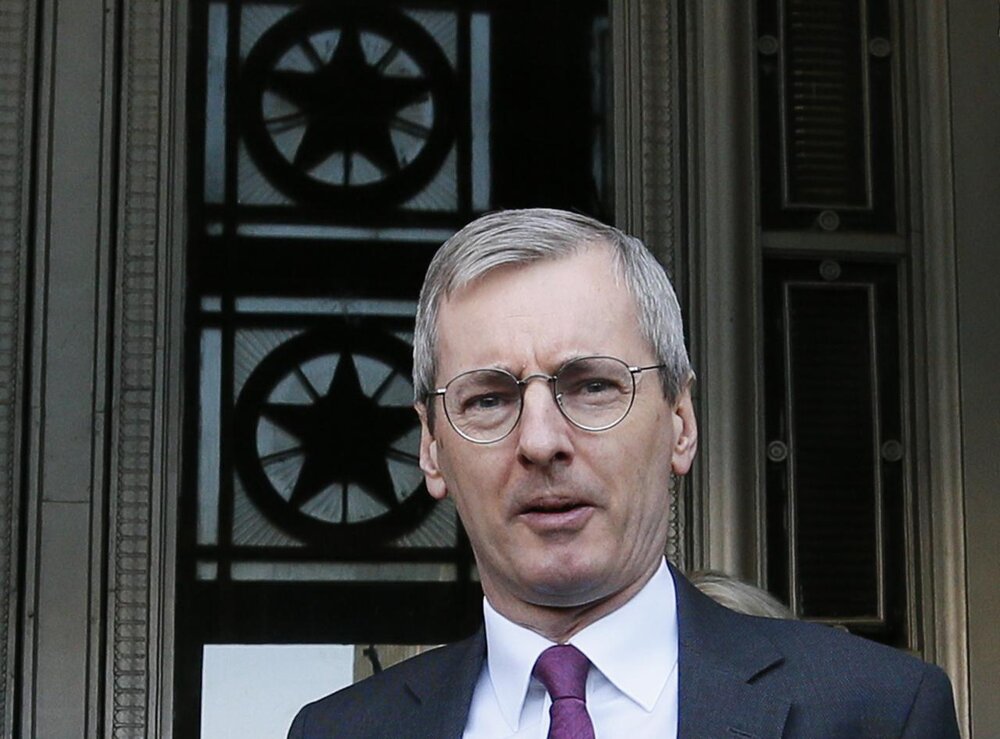Nuclear deal is in trouble: British diplomat

Ambassador of the United Kingdom to Russia Laurie Bristow, who is leaving his post, has said that the 2015 nuclear deal, known as the Joint Comprehensive Plan of Action, “is in trouble”.
“I had in Moscow last week our political director, Richard Moore. Richard is the foreign secretary’s top advisor on matters of international security. He was here with his European colleagues, French and German colleagues, to talk with their Russian colleague, Sergei Ryabkov, about the Iran nuclear deal. The reasons you well know. The Iran nuclear deal is in trouble,” he told Interfax in an interview published on Monday.
“As the leading members of the international community – we [Russian and the UK] are both permanent members of the UN Security Council – we have a special responsibility here to work together to strengthen the international nuclear non-proliferation arrangements,” he said.
During a meeting with Russian Security Council Secretary Nikolai Patrushev on the sidelines of the Regional Security Dialogue on Afghanistan in Tehran on December 18, Ali Shamkhani, secretary of Iran’s Supreme National Security Council (SNSC), said that if the Europeans fail to fulfil their commitments under the nuclear deal, Iran will have no choice but to continue reducing its commitments to the pact in order to create a balance.
For his part, Patrushev said that the JCPOA must be implemented and that Iran must enjoy its benefits.
Josep Borrell, the new EU foreign policy chief, has said the nuclear deal has benefits for Europe and efforts must be made to preserve it, IRNA reported on December 16.
“The JCPOA is still alive and we make efforts to keep it alive,” Borrell said, according to a translation of his remarks.
He noted that the European Union supports the JCPOA and seeks to preserve it.
He also said on December 7 that “collective responsibility” is needed to stop the JCPOA from breaking apart.
“We have a collective responsibility to preserve #IranDeal,” Borrell tweeted.
U.S. President Donald Trump quit the nuclear deal in May 2018 and introduced the harshest ever sanctions on Iran as part of his administration’s “maximum pressure” campaign against Iran.
Under the JCPOA, Iran promised to put limits on its nuclear activities in exchange for the termination of economic and financial sanctions.
Britain, France, Germany, Russia, China, and Iran have been trying to salvage the pact. However, Europeans’ efforts to protect trade with Iran against the U.S. sanctions have yielded nothing concrete so far.
On May 8, exactly one year after the U.S. abandoned the deal, Tehran announced that its “strategic patience” is over and began to partially reduce its commitments to the agreement at bi-monthly intervals.
Iran’s moves are based on paragraph 36 of the JCPOA which “allows one side, under certain circumstances, to stop complying with the deal if the other side is out of compliance.”
In the first stage, Iran announced that it will not limit its stockpile of the nuclear fuel to 300 kilograms allowed under the deal. On that date (May 8) Iran’s Supreme National Security Council (SNSC) said if the remaining parties to the JCPOA, especially Europeans, devise a mechanism to protect Iran from the sanctions’ effect in the two-month deadline it will reverse its decision.
But since European parties missed the deadline, on July 7 Iran announced that it has started enriching uranium to a higher purity than the 3.67%, thereby starting the second step.
Again, as Europe missed the second 60-day deadline, Iran moved to take the third step, removing a ban on nuclear research and development (R&D).
In the latest step, which started on November 6, Iran began injecting uranium gas into 1,044 centrifuges at the Fordow nuclear site. It was done at the presence of inspectors from the International Atomic Energy Agency (IAEA).
Iran has said it will reverse its decision if its economic interests are guaranteed.
NA/PA

Leave a Comment